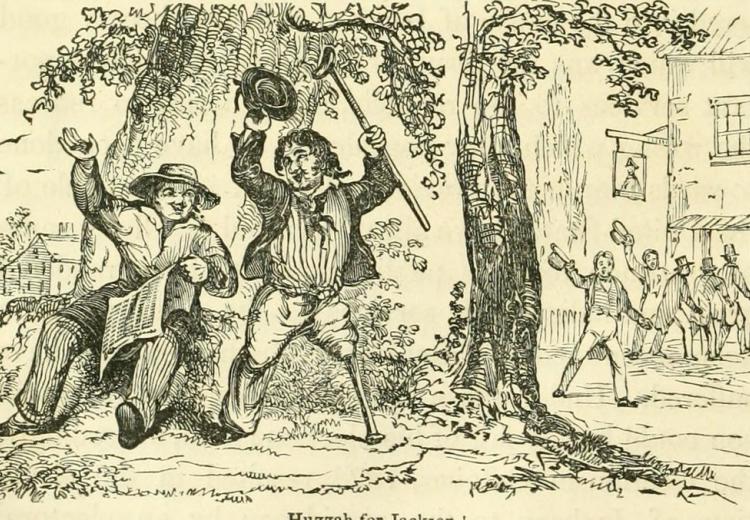Lesson 2: The 1828 Campaign of Andrew Jackson: Changes in Voting Participation

"Huzzah for Jackson" image from "Pictorial life of Andrew Jackson" (1847).
Changes in voting qualifications and participation, the election of Andrew Jackson, and the formation of the Democratic Party—due largely to the organizational skills of Martin Van Buren—all contributed to making the election of 1828 and Jackson's presidency a watershed in the evolution of the American political system. The campaign of 1828 was a crucial event in a period that saw the development of a two-party system akin to our modern system, presidential electioneering bearing a closer resemblance to modern political campaigning, and the strengthening of the power of the executive branch.
In this lesson, students analyze changes in voter participation and regional power, and review archival campaign documents reflecting the dawn of politics as we know it during the critical years from 1824 to 1832.
Guiding Questions
What changes in voting participation are evident in the election of 1828?
Do the statistics indicate that Andrew Jackson's popularity was an important factor in voting participation in 1828?
Learning Objectives
Examine how voting participation changed in the first half of the 19th century.
Synthesize data to articulate reasons for changes in voting participation and the results of the election of 1828.
